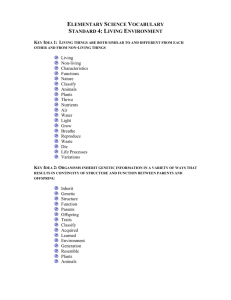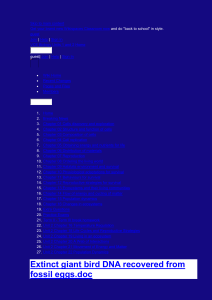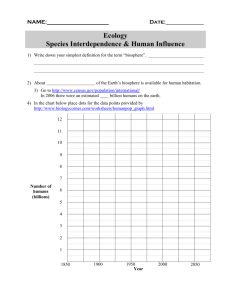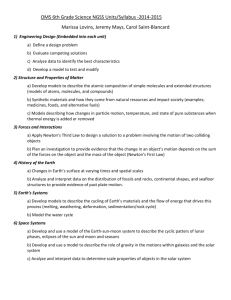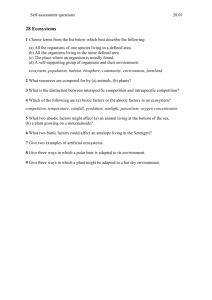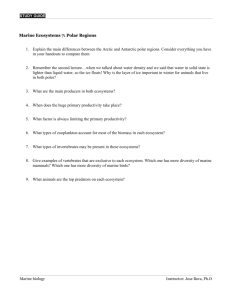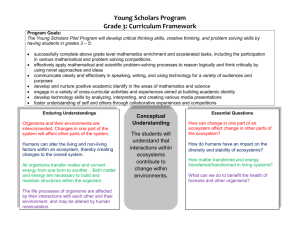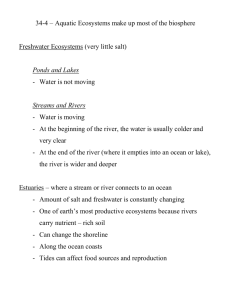critical ecological concepts
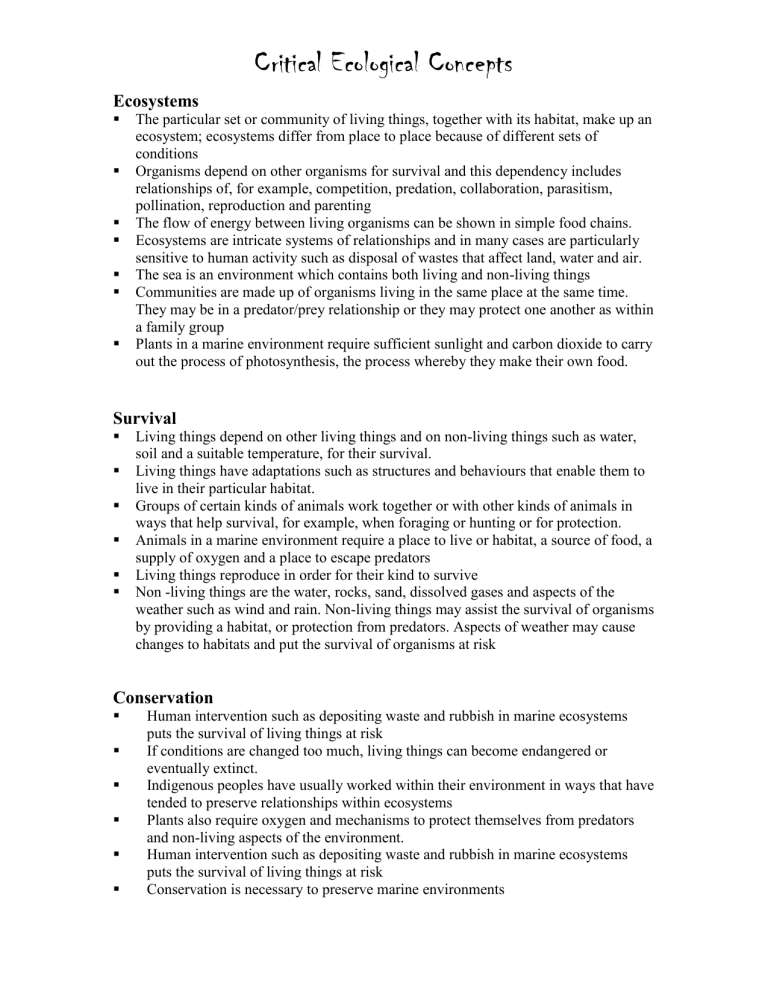
Critical Ecological Concepts
Ecosystems
The particular set or community of living things, together with its habitat, make up an ecosystem; ecosystems differ from place to place because of different sets of conditions
Organisms depend on other organisms for survival and this dependency includes relationships of, for example, competition, predation, collaboration, parasitism, pollination, reproduction and parenting
The flow of energy between living organisms can be shown in simple food chains.
Ecosystems are intricate systems of relationships and in many cases are particularly sensitive to human activity such as disposal of wastes that affect land, water and air.
The sea is an environment which contains both living and non-living things
Communities are made up of organisms living in the same place at the same time.
They may be in a predator/prey relationship or they may protect one another as within a family group
Plants in a marine environment require sufficient sunlight and carbon dioxide to carry out the process of photosynthesis, the process whereby they make their own food.
Survival
Living things depend on other living things and on non-living things such as water, soil and a suitable temperature, for their survival.
Living things have adaptations such as structures and behaviours that enable them to live in their particular habitat.
Groups of certain kinds of animals work together or with other kinds of animals in ways that help survival, for example, when foraging or hunting or for protection.
Animals in a marine environment require a place to live or habitat, a source of food, a supply of oxygen and a place to escape predators
Living things reproduce in order for their kind to survive
Non -living things are the water, rocks, sand, dissolved gases and aspects of the weather such as wind and rain. Non-living things may assist the survival of organisms by providing a habitat, or protection from predators. Aspects of weather may cause changes to habitats and put the survival of organisms at risk
Conservation
Human intervention such as depositing waste and rubbish in marine ecosystems puts the survival of living things at risk
If conditions are changed too much, living things can become endangered or eventually extinct.
Indigenous peoples have usually worked within their environment in ways that have tended to preserve relationships within ecosystems
Plants also require oxygen and mechanisms to protect themselves from predators and non-living aspects of the environment.
Human intervention such as depositing waste and rubbish in marine ecosystems puts the survival of living things at risk
Conservation is necessary to preserve marine environments

